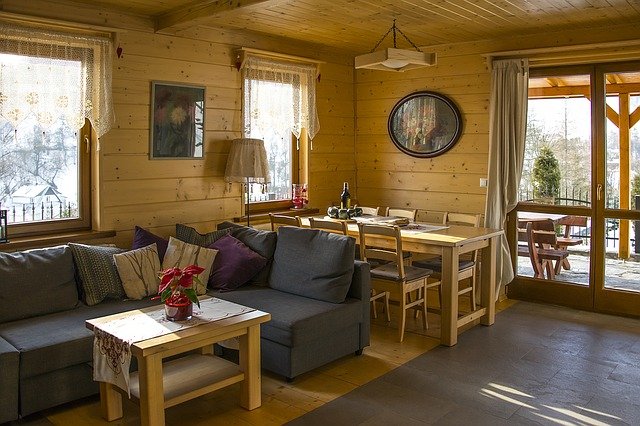No products in the cart.
4 Things To Think About When Renting A Home
One of the benefits of renting is that you don’t have constant concern over the disasters that could befall your most valuable asset.

There is still a misconception that renting a home is always a plan B. Conventional wisdom states that if you can afford to buy a home, renting a home is a waste of money. After all, you are paying thousands of dollars for a home that will never be yours. However, renting is no longer only for struggling millennials.
People across the generation spectrum have a number of reasons to prefer renting to owning a home, and they are not just about the cost. Rather, renting gives you the freedom to move more often, taking opportunities to travel across the globe to work in a foreign country. Renting also saves you from having to spend time and energy taking care of maintenance issues, which are the bane of every homeowner’s existence.
Owning assets is no longer as important as it once was, and some people prefer to go about building wealth in different ways. If you are considering renting instead of buying a home, here are 4 things to take into consideration.
1. You Still Need Insurance
One of the benefits of renting is that you don’t have constant concern over the disasters that could befall your most valuable asset. As such, insurance is probably far from your mind. While you don’t need homeowners insurance, it is still important to have renters insurance. Renters insurance covers your possessions, whether they are at your rental home or on your person. It can also cover personal liability, which can save you a lot of money if you are responsible for damages to a third party. That said, renters insurance tends to be a lot more affordable than homeowners insurance. Take a look at this rundown of renters insurance costs by Lemonade. Lemonade renters insurance could cost you as little as $5 a month.
2. Negotiate Water and Electricity Into Your Rent
If you are trying to save every penny, you may try to negotiate your rent to be as low as possible, while paying for your own water and electricity bills. However, if that is not the case, negotiate to make it part of the monthly rent. This is not because it will save you money (although it might if you are a heavy user of electric equipment). Rather, it will save you from having to worry about these bills every month. One of the best things about renting instead of buying is that you don’t need to take care of maintenance. Let your landlord do the work of deciphering bills and seeing that they are paid.
3. Get a Place That Allows Pets
Since renting is a long-term choice you are making, you should consider specifically finding a place that allows pets. Even if you do not have a pet now, that can change as you settle more into your home. When you own your home, you can do whatever you want, but when renting you have to follow the landlord’s rules. The last thing you want is to have to say no to a pet down the line because it is not allowed at your rental. You also don’t want to have to move out of a home you have come to love just to accommodate your new pet. Landlords who are sticklers about pets are also often finicky about what you do while living there. They may be more concerned about the state of their floors than your satisfaction with the place.
4. Discuss the Length of Your Stay
Since you are choosing to rent rather than using it as a stepping stone, it is important that you know you can stay as long as you want to. Speak to the landlord about how long you intend to stay – whether it is for a certain number of years or indefinitely – to get an idea of what they intend to do with the home in the long run.
Also discuss the terms under which you might end your stay prematurely. Being able to get up and go is one of the benefits of renting, but it is better if you don’t have to pay for the months left in your lease. Some landlords will be happy to make a concession if they are able to find a tenant to replace you or if you give them a certain amount of advance notice.










Leave a Reply